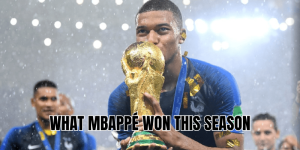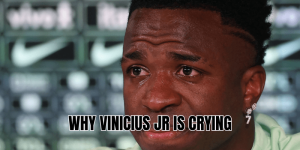In recent years, fans have asked again and again: why Ronaldo banned in South Korea? The truth is, there’s no official ban preventing Cristiano Ronaldo. But there was a major incident in 2019 tied to a friendly match that sparked huge backlash — a controversy that fans sometimes misinterpret as a formal ban. In this article, BraeckBall will unpack what really happened, what fans demanded, what legal rulings were made, and why the idea of a “ban” is more myth than fact.
The Seoul friendly: promises, disappointment, and outrage
In July 2019, Juventus traveled to Seoul to play a friendly match against a K-League All Stars team. Ronaldo was heavily promoted as part of the event — but fans were also promised something specific: that he would play at least 45 minutes.
But when the match kicked off, Ronaldo stayed on the bench the entire time. He didn’t enter the field for a single minute, despite huge anticipation.
Juventus and Ronaldo’s camp later cited reasons like muscle fatigue — saying Ronaldo had played a match in China 48 hours earlier, and needed rest based on medical advice.
What followed: legal action, fan anger, and media storm
That no-show triggered a wave of anger among South Korean fans. Some burnt Ronaldo shirts, many unfollowed or stopped supporting him, and social media exploded with “Ronaldo no-show” protests.
Several fans took legal action against the event organisers on the basis of “false advertising” — that Ronaldo was advertised to play for 45 minutes, and for signing with fans. They sought compensation for ticket costs and “mental anguish.”
Courts in South Korea found in favor of some of these plaintiffs. For example:
- Two fans were awarded compensation (ticket cost + emotional distress) in early 2020.
- Later, 162 fans won another case: they were refunded half their ticket price plus a small additional sum.
Also, South Korean authorities investigated the match organizers, including a police raid on the marketing agency involved.
Why there’s no actual ban
While the fans’ reactions and legal rulings were serious, there is no record of the South Korean government or football authorities issuing a ban on Ronaldo entering the country or participating in matches. Some online sources perpetuate a narrative of a “ban,” often based on misunderstandings or exaggerations of the 2019 events. Here’s what distinguishes the truth:
- The “ban” that many refer to is actually a social ban of sorts: protests, removal of products, calls for boycotts. Not a legal travel or immigration ban.
- Courts ruled on contractual promises and refund demands, not on banning individuals.
- Juventus and Ronaldo were not formally punished by FIFA or Korean football bodies under any regulation banning entry or performance.
So, while feelings ran hot and consequences followed for organizers and event promoters, Ronaldo remains technically free to visit, play or perform in South Korea if contracted properly.
Aftermath and longer-term impact
The 2019 incident left scars in the relationship between Ronaldo (and his clubs’ organizers) and South Korean fans. Several longer-term effects:
- Fan trust was damaged; Ronaldo’s popularity in Korea dropped in surveys.
- Event promoters in Korea became more cautious about advertising “must play” promises and guaranteeing match-minutes.
- There were increased legal precedents: fans successfully suing for false advertising or breach of contract turned this kind of dispute.
Debunking common myths
|
Myth |
Reality |
|
Ronaldo is banned by South Korean law |
False — no legal ban documented; the “ban” is a fan-driven or social/media reaction, not government or legal restriction. |
|
He can never play in Korea again |
Not true — there is nothing preventing him. |
|
Organisers always guarantee star players will play |
They can guarantee, but legal consequences follow if promises are broken. |
Conclusion
Today, it’s clear that the question why Ronaldo banned in South Korea stems. The event that triggered all the controversy was the 2019 friendly match in Seoul, when Ronaldo didn’t play despite being promised to, which enraged fans and led to lawsuits. But there is no formal ban — it’s more a legacy of mistrust, broken promises, and social backlash than a legal restriction.
BraeckBall hopes this clears up the confusion. If you like, I can pull up direct quotes, explore how this affected Ronaldo’s endorsements in Korea, or track whether there has been any recent fallout. Want me to dig deeper?


